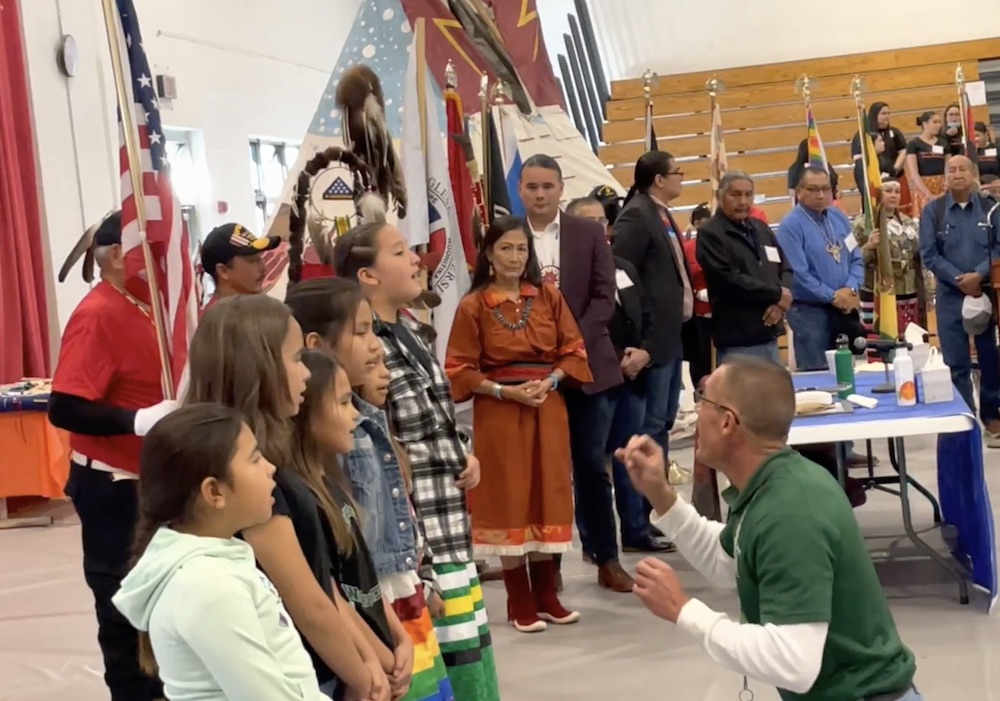
- Details
- By Jenna Kunze
The Department of the Interior announced Friday that Interior Secretary Deb Haaland (Laguna Pueblo) and Assistant Secretary for Indian Affairs Bryan Newland (Bay Mills Indian Community) will travel to Mille Lacs County, Minnesota on Saturday, June 3, 2023 for the seventh stop on “The Road to Healing” tour.
The visit is part of a yearlong tour across the country that provides Native American survivors of Indian boarding schools and their descendants an opportunity to share their experiences.
Minnesota hosted at least 16 federal Indian boarding schools, according to the Interior’s 2022 investigative report listing 408 federally supported boarding schools. The report was one outcome from the Interior’s Federal Indian Boarding School Initiative to shed light on the troubled history of Federal Indian boarding school policies and their legacy. Following the publication of Volume 1 of the department’s investigative report last May, Haaland announced the “Road to Healing” initiative to collect oral histories—with trauma-informed support— from impacted Native communities.
Previous stops for The Road to Healing tour include Native American communities in Anadarko,Oklahoma; Pellston, Michigan; the Rosebud Indian Reservation in South Dakota; the Gila River Indian Community in Arizona; Many Farms, Arizona on the Navajo Nation; and the Tulalip Reservation in Washington.
Native News Online will be onsite for the June 3 event as part of its ongoing reporting project on Indian boarding schools and their effects on Native American families and communities.
More Stories Like This
Navajo Resources and Development Committee Issues Notice on Livestock Inspection RequirementsAmerican Prairie, Tribal Coalition Files Protest Over Rescinded Grazing Rights
Northern Cheyenne Push Back Against Trump Administration’s Effort to Alter Little Bighorn History
Florida Man Sentenced for Falsely Selling Imported Jewelry as Pueblo Indian–Made
Navajo Nation Declares State Of Emergency As Winter Storm Threatens Region
Help us defend tribal sovereignty.
At Native News Online, our mission is rooted in telling the stories that strengthen sovereignty and uplift Indigenous voices — not just at year’s end, but every single day.
Because of your generosity last year, we were able to keep our reporters on the ground in tribal communities, at national gatherings and in the halls of Congress — covering the issues that matter most to Indian Country: sovereignty, culture, education, health and economic opportunity.
That support sustained us through a tough year in 2025. Now, as we look to the year ahead, we need your help right now to ensure warrior journalism remains strong — reporting that defends tribal sovereignty, amplifies Native truth, and holds power accountable.
 The stakes couldn't be higher. Your support keeps Native voices heard, Native stories told and Native sovereignty defended.
The stakes couldn't be higher. Your support keeps Native voices heard, Native stories told and Native sovereignty defended.
Stand with Warrior Journalism today.
Levi Rickert (Potawatomi), Editor & Publisher

